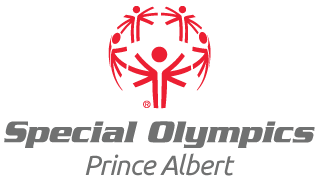Utilizing Sports for a Better Life
For decades, Special Olympics Canada has optimized the benefits of a healthy and active lifestyle through sport to improve the well being of individuals with an intellectual disability. To this day, we continue to use this as our main focus.
SOC Mission Statement
Special Olympics Canada is dedicated to enriching the lives of Canadians with an intellectual disability through sport.
The primary focus of Special Olympics Canada is to enrich the lives of individuals with an intellectual disability through their involvement in sport.
According to the American Association of Intellectual and Developmental Disabilities (AAIDD), an individual is considered to have an intellectual disability based on the following three criteria:
Intellectual functioning level (IQ) is below 70-75
Significant limitations exist in two or more adaptive skill areas
The condition manifests itself before the age of 18
Adaptive skills are assessed in the person’s typical environment across all aspects of an individual’s life. A person with limits in intellectual functioning who does not have limits in adaptive skill areas may not be diagnosed as having an intellectual disability.
A person is eligible to participate in Special Olympics if they have been identified by an agency or professional as having intellectual disabilities as determined by their localities.
The minimum age requirement for participation in Special Olympics competition is eight years of age.
We also launched Active Start and FUNdamentals nationwide, two innovative sports play program for children with intellectual disabilities between the ages of two to 12, which introduces them to the world of sports prior to Special Olympics eligibility at age eight. These programs engage young athletes through a variety of developmentally appropriate play activities that are designed to foster physical, cognitive and social development.
And then, it is the type of disability, in this case intellectual instead of physical, which differentiates Special Olympics from the Paralympics. Although the International Olympic Committee recognizes Special Olympics and Paralympics, they are two separate and distinct organizations.
Another fundamental difference that sets Special Olympics apart from other sports organizations is that athletes of all ability levels are encouraged to participate. Through the use of equitable divisioning, competitions are structured so that athletes are able to compete with other athletes of similar abilities. For more information on this process, please see our section on Program Rules.


